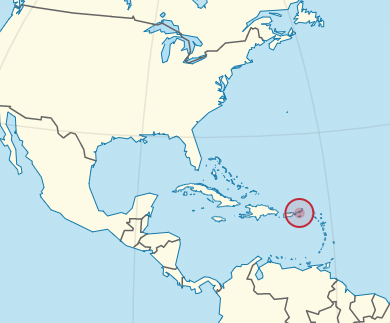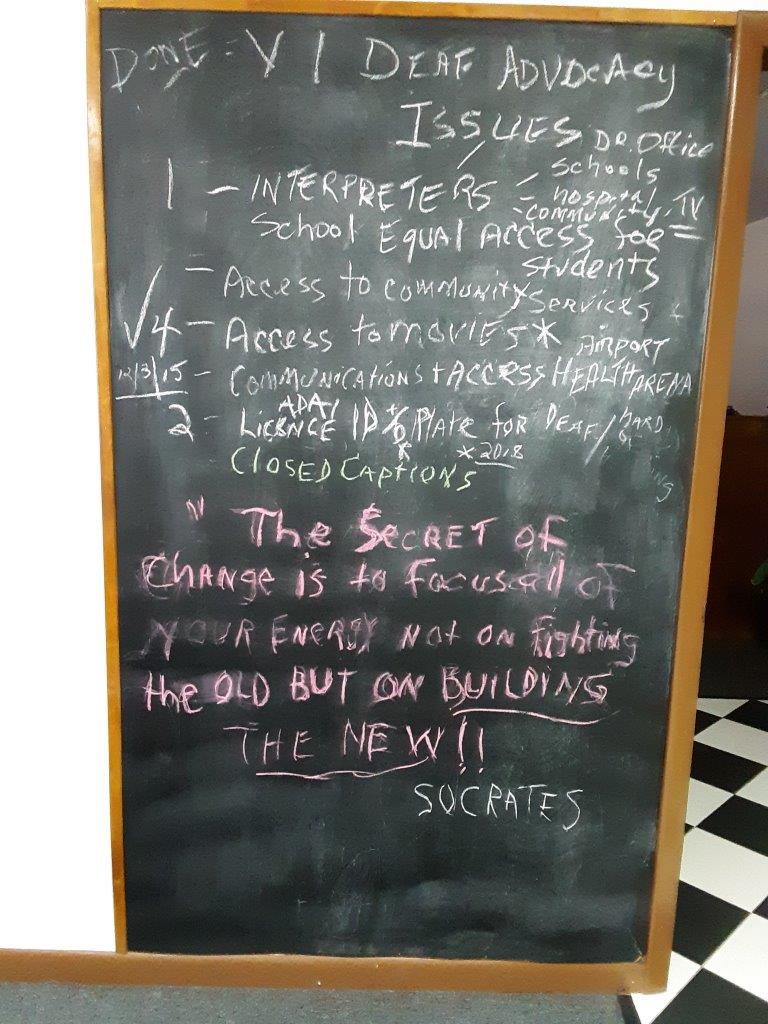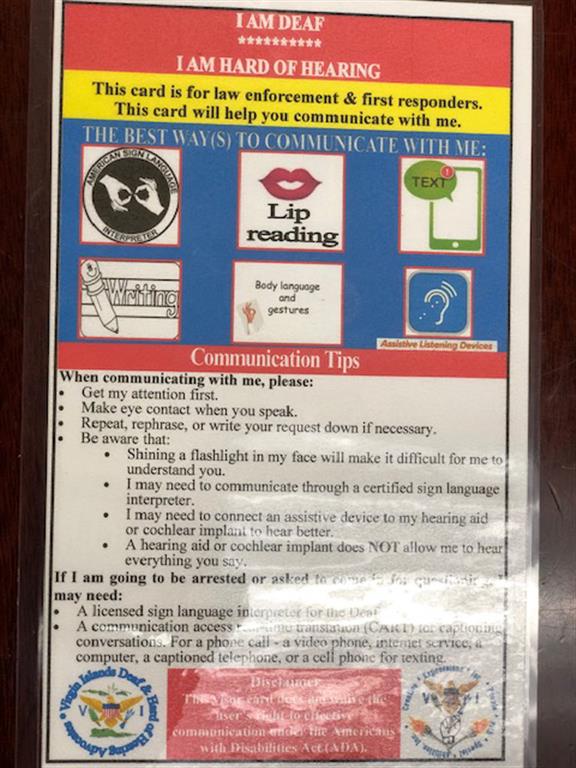
Aditya Ganapathiraju
ADA Knowledge Translation Center
Imagine being Deaf or hard of hearing and finding yourself at a theater offering special glasses that captioned the movie so you could enjoy it alongside everyone else. Watching the latest Star Wars movie in that accessible format was a special event for Deaf advocates in the US Virgin Islands. The event was just one of many successes organized by local disability advocates with expert assistance from the Northeast ADA Center, one of 10 regional centers that make up the ADA National Network.
Located just east of Puerto Rico, the US Virgin Islands is a US territory; this means that the island’s population is covered by the Americans with Disabilities Act (ADA). The Northeast ADA Center and the US Virgin Islands are officially linked as part of Federal Education Region 2. Despite the long-distance relationship, an enduring partnership has existed for nearly 10 years. The Northeast ADA Center collaborates with the Disability Rights Center of the Virgin Islands (DRCVI), an advocacy organization providing legal services to people with disabilities living in the US Virgin Islands.
Archie Jennings, an attorney and disability rights advocate at DRCVI, has seen the growth of the relationship throughout the years. In 2010, he first attended a training workshop conducted by Wendy Strobel Gower, director of the Northeast ADA Center. The Northeast ADA Center and the DRCVI started communicating regularly in biweekly meetings and engaging in ADA specific trainings on topics like Hidden Disabilities, compliance with the ADA, and different forms of accessibility. This collaboration extends to other local advocacy groups in the US Virgin Islands, serving as a model for success.
One of the strongest disability communities in the US Virgin Islands is the Deaf and hard of hearing community. With DRCVI’s input and the Northeast ADA Center’s expert guidance, Deaf advocates developed a list of ADA issues to address: ADA trainings were offered on issues such as accessible transportation, emergency management, police stop protocol, access to healthcare including having ASL interpreters available at medical providers’ offices, and other important issues facing the disability community in the US Virgin Islands. Importantly, goals and objectives were chosen by the local community, a model that empowered the disability advocacy groups while avoiding a group of mainlander “experts” coming to say what works best.
With a little support from the Northeast ADA Center, the local advocates went straight to work.
“We tell them the rules,” Strobel Gower said, “and they do the work… It’s impressive to watch. The Deaf advocates in the US Virgin Islands are all about educating people and trying to make change.”
Police stops were one of the important issues the local Deaf advocates chose to work on. Unlike the US mainland, in the US Virgin Islands the police officer stays in the car and the person who is pulled over is expected to get out… a situation that can be dangerous when a person with a disability can’t hear the officer. As a result of active engagement with the disability community and the police force, Jennings and his fellow advocates developed cards that assist people who are Deaf and hard of hearing when they are pulled over.


Access to healthcare was another critical issue that local Deaf advocates collaborated with the Northeast ADA Center to improve. Because there are very few interpreters on the islands, the Northeast ADA Center worked with the DRCVI to create a list of interpreters, sort out how to pay them, and include the interpreters in ensuring access to healthcare.
Stigma associated with Deaf and hard of hearing folks is another problem Deaf advocates in the US Virgin Islands addressed. Local advocates made presentations to government personnel addressing disability stigma. These presentations also included information about the government’s responsibilities and obligations under the ADA, including program accessibility.
Strobel Gower and Jennings identified that the key to the many successes is local, collective action. Deaf advocates in the US Virgin Islands chose the objectives to improve their community. The Northeast ADA Center and its partner DRCVI supported them with training and expertise to help them realize their power through collective action.
“It’s really a best-case scenario,” Strobel Gower said, describing how the advocates on the ground “were inspired to do the work in their local community as a result of the Northeast ADA Center’s interaction there.”

.png)




